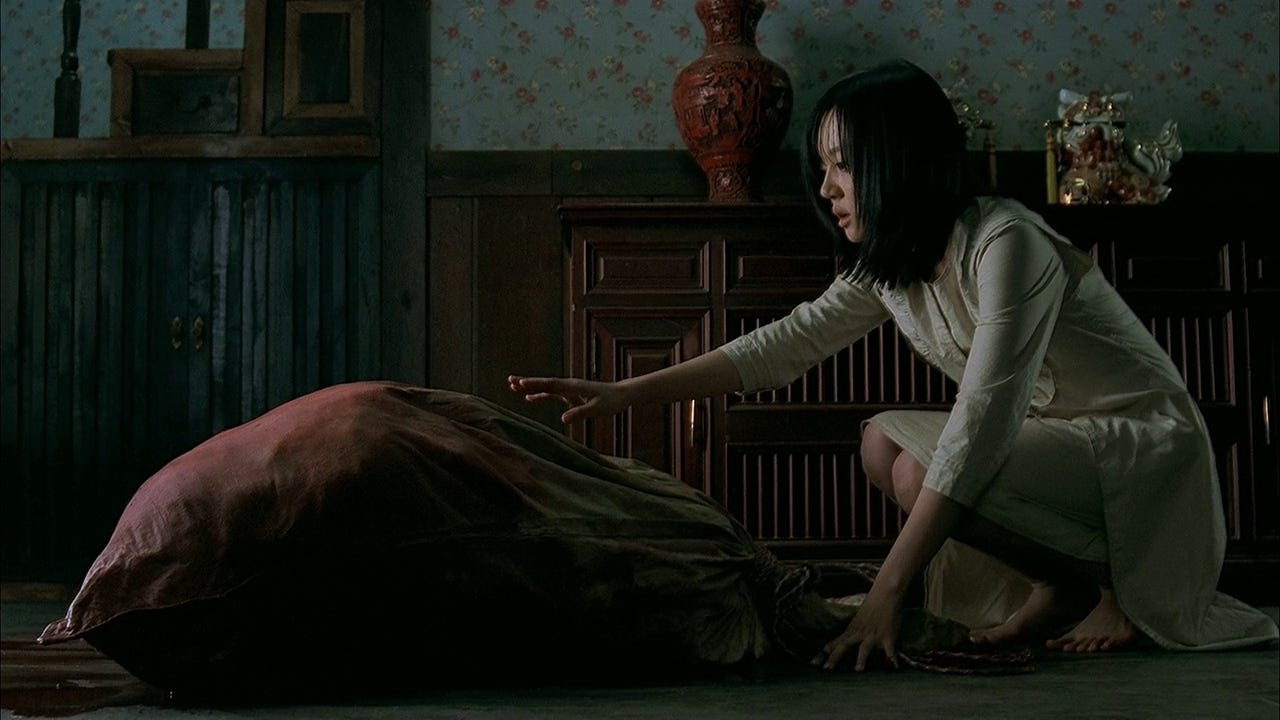
when Horror Yearbook – Janghwa and Hongryeon is a famous Korean ghost story. It tells of two sisters who were murdered. Their spirits returned seeking justice and revenge. The tale highlights themes of betrayal, family, and supernatural retribution. It remains a powerful story in Korean culture and folklore.
Janghwa and Hongryeon lived with their father and stepmother. The stepmother acted cruelly and felt jealous of the sisters. She made false accusations against them to their father. The sisters endured great suffering from this abuse. Tragically, the stepmother murdered them. At first, no one explained or avenged their deaths. After the murders, eerie events began happening in the village. Locals saw two ghostly women appearing around. People recognized these spirits as Janghwa and Hongryeon. They haunted their stepmother and others involved in their pain. The sisters’ spirits stood as powerful symbols of vengeance and justice.
“Read about: The Legend of Tengu: Guardians of the Forest and Mountain Spirits”
Janghwa and Hongryeon often wear traditional hanbok dresses. Their clothing appears white, symbolizing death and mourning in Korean culture. Long, flowing black hair often hides their faces. Cold winds and uneasy feelings accompany their presence. Some people hear sorrowful wails and cries for justice from them. These spirits do not harm innocent people. Instead, they focus on those who caused them pain. Their vengeance remains relentless and purposeful. The story warns listeners about cruelty and injustice consequences. Janghwa and Hongryeon act as moral guardians through their haunting.
Many filmmakers and writers have adapted the story of Janghwa and Hongryeon. Films, dramas, and books retell the tragic tale in various forms. The 2003 horror movie A Tale of Two Sisters draws clear inspiration from this folklore. Korean horror and ghost stories worldwide continue to be influenced by the legend. Schools and cultural programs use the story to teach important lessons. It reminds people to practice kindness and justice, especially within families. The sisters’ story connects with universal themes like suffering and revenge. It holds a timeless and important place in Korea’s cultural memory.
“Read more: Portable Muscle Stimulators: Boost Recovery and Ease Soreness Anytime”
Beyond being just a ghost story, Janghwa and Hongryeon symbolize unresolved trauma and deep emotional pain. Their spirits represent the lasting effects of injustice and family betrayal. The tale vividly explores how grief and anger can continue to haunt the living long after tragic events occur. Through their story, empathy is encouraged for those who suffer silently, often without a voice. In many ways, Janghwa and Hongryeon reflect broader societal fears about family breakdown, abuse, and cruelty. The legend warns against the destructive power of envy and malice, showing how these feelings can cause harm beyond the living world. The restless spirits of Janghwa and Hongryeon demand recognition and justice for their suffering. This enduring story remains deeply meaningful and relevant beyond its supernatural aspects, resonating with listeners on a psychological and emotional level.